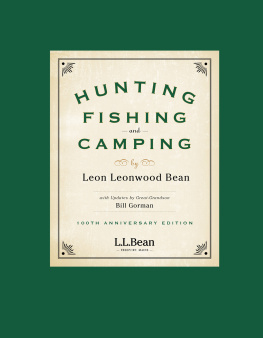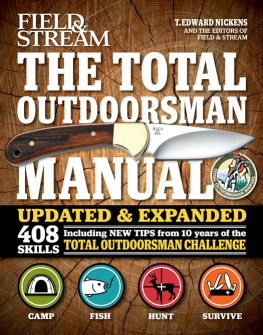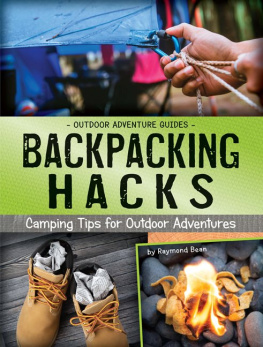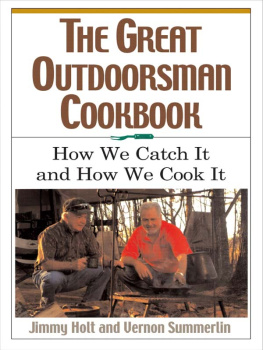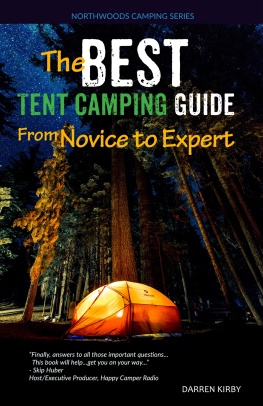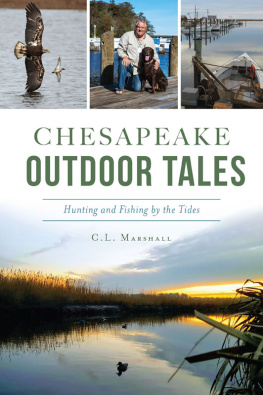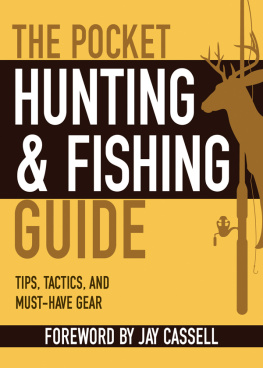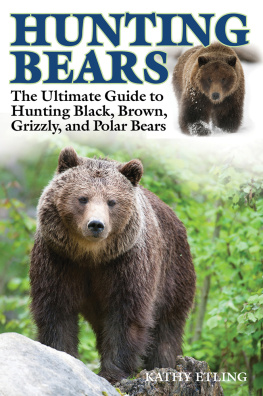Copyright 2011 L.L. Bean
All rights reserved
ISBN 978-1-60893-012-8
Design by Miroslaw Jurek
Printed in China
5 4 3 2 1

Books Magazine Online
Rockport, Maine
www.downeast.com
Distributed to the trade by National Book Network
Library of Congress Cataloging-in-Publication Data
Bean, L. L. (Leon Leonwood), 1872-1966.
Hunting, fishing, and camping / by Leon Leonwood Bean ; with updates & notes by Bill Gorman, great-grandson of L.L. Bean. -- 100th anniversary ed.
p. cm.
ISBN 978-1-60893-012-8
1. Hunting. 2. Fishing. 3. Camping. I. Title.
SK33.B42 2012
799.2--dc23
2011036111
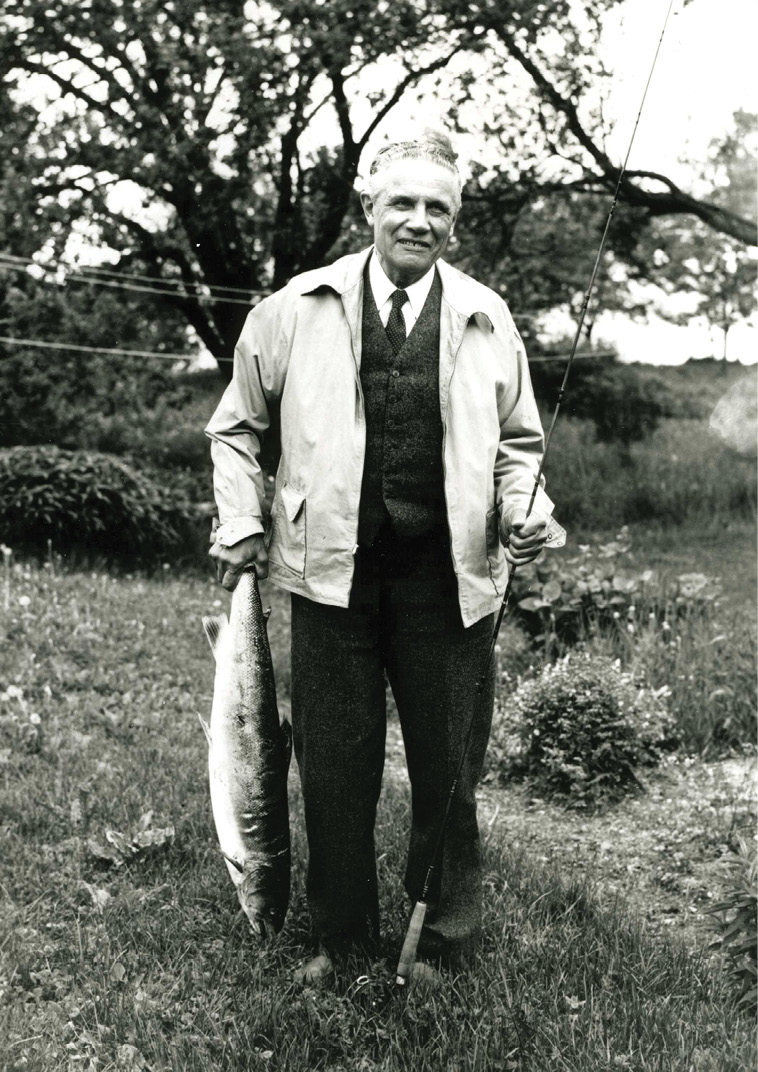
The author with a salmon taken on live bait-fly as described in Chapter 17.
A Note from Bill Gorman
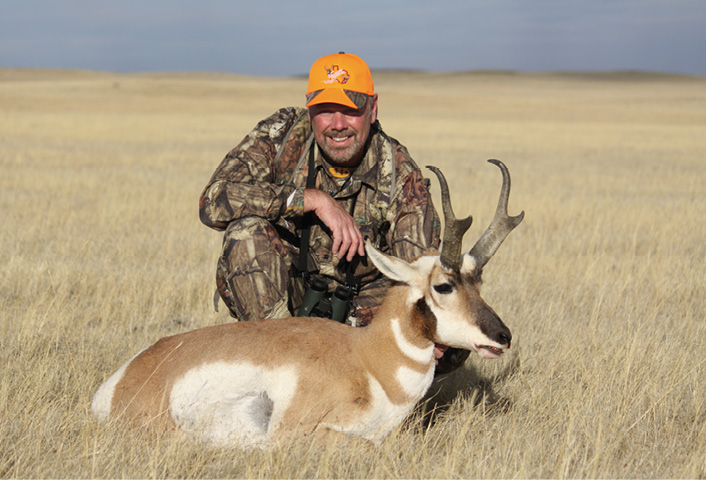
As a boy, I always looked forward to visiting my great-grandfather L.L. at his retail store in Freeport. In my eyes, he was a strong, smiling man with a big personality presiding over a boys dream a world of mesmerizing animal mounts, tents, axes, sleeping bags, and fishing rods. Although he died when I was only five years old, L.L. has been a powerful influence in shaping who I am today. The joy I receive from hunting, fishing, and just being outdoors is his legacy to me.
My great-grandfather was an astute entrepreneur and an eminently practical man, but he was, above all else, a passionate outdoorsman. That blend of passion and practicality is what led him to write his Hunting Fishing and Camping guide, which he said should be readable in eighty-five minutes. His point, after all, was not to immerse his audience in tales of the outdoors, but in the outdoors itself.
I would, however, suggest spending a little bit longer enjoying this edition of L.L.s classic. First published in 1942, Hunting Fishing and Camping has lost some of its practical use as a hands-on manual in this twenty-first-century age of Gore-Tex rainwear and graphite fly rods (although a surprising amount of its advice still holds up today). But as a nostalgic look at a bygone era in the Maine woods, this book knows no equal. Thats one of the reasons we have decided to bring it back into print, with updated information about the ways our favorite outdoor pursuits have changed since L.L.s day and the ways they have stayed the same.
In many ways, too, L.L. Bean has changed since my great-grandfather was at the helm. While it is a much bigger company with a far broader line of products, L.L.s influence endures in our legendary commitment to customer service. And todays L.L.Bean actively promotes the responsible use of the outdoors that L.L. so deeply loved, through sustainable forest management, energy conservation, green building design, and use of alternative energy, as well as charitable support for conservation and outdoor recreation organizations.
Of course, the best way to convince people of the importance of conservation is to take them hunting, fishing, or camping, as my great-grandfather understood. L.L. introduced generations to the pleasures of experiencing nature firsthand. In his original introduction to this book, L.L. wrote that venturing into the great open spaces teaches us to forget the mean and petty things of life. That is a lesson whose value has only increased with time.
Bill Gorman, 2012
Introduction
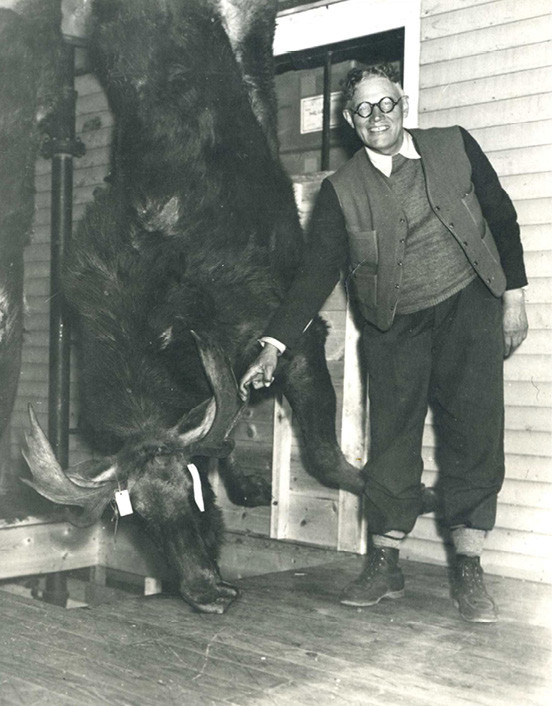
L.L. Bean, the author, of Freeport, Maine, and moose shot by him in fall of 1935.
The object of this book is not to bore my readers with personal yarns and experiences but to give definite information in the fewest words possible on how to Hunt, Fish, and Camp.
I am confining the territory to Maine, however, the same instructions and rules apply to all sections of the country where the same fish and game are found.
To make this book as brief as possible, I am dealing only with major information. Minor details are easily learned by practice. The instructions are so condensed that the reading time of the whole book is only 85 minutes.
If you have youngsters coming on, let them read this book. The information is just as important as many school text books.
I am a firm believer in the conservation of all fish and game and the strict enforcement of all game laws. To my mind, hunting and fishing is the big lure that takes us into the great open spaces and teaches us to forget the mean and petty things of life.
Leon Leonwood Bean, 1942
I desire to acknowledge with appreciation the valued cooperation of:
The Maine Forestry Department
Warden Supervisor Arthur Rogers
Henry Milliken
Henry Beverage
George Soule
O.H.P. Rodman
J. Larry Hawkes
Parker Foss
Guy Bean
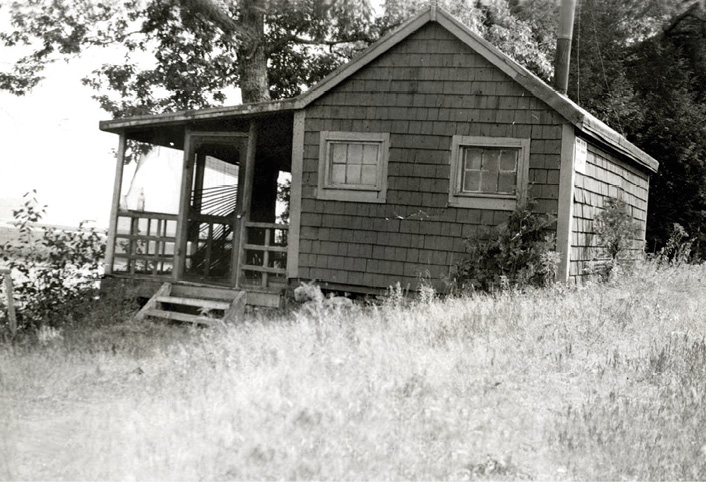
L.L. Beans Duck Hunting Camp at Merrymeeting Bay near Brunswick, Maine.
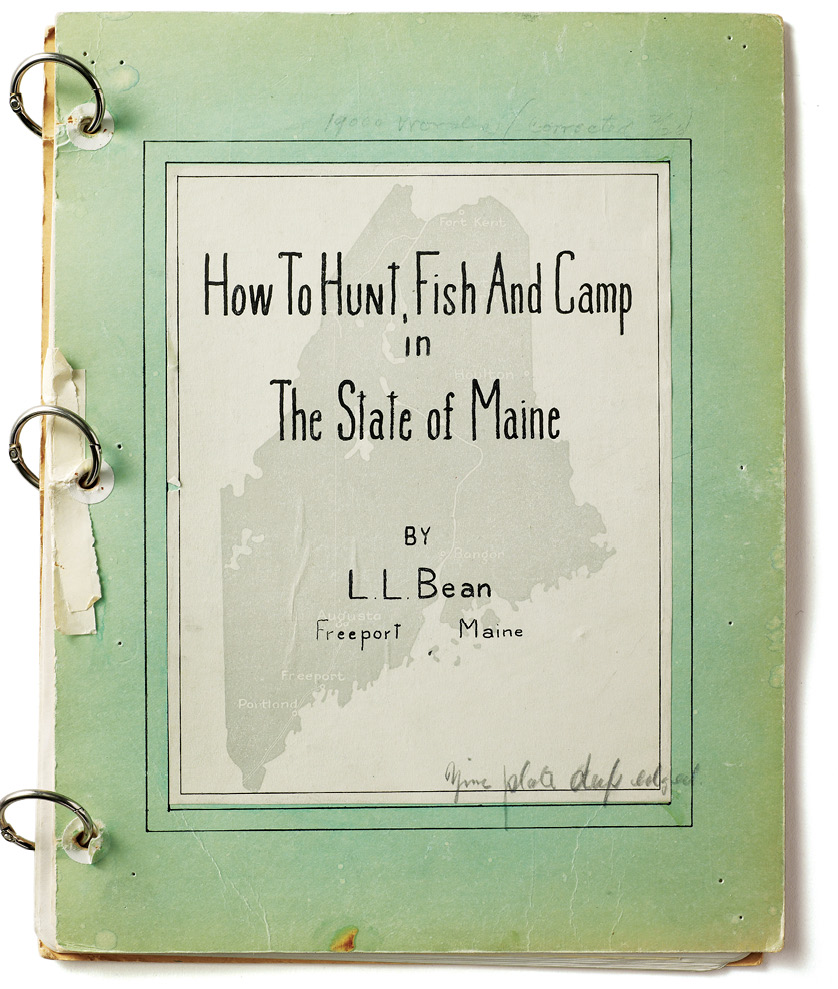
CHAPTER 1
Deer Hunting on Bare Ground
The first thing to decide: Where shall I go? Second: How many do I want to make up the party?
Where to go is the most important question to settle. You will find your answer in Chapter 37.
Now for your party. A perfect trip may be ruined by one person who does not fit. I recommend small parties, not over four. Two makes a good party.
BILL GORMAN > Two made a good hunting party in the past when you depended on a partner to know where you were and to help drag animals out. Nowadays, with cell phones and better communication, you can more easily hunt solo.
The next thing after making up your party and where to go is to decide on your camp. Shall you use a tent, a lean-to, an old logging camp or go to a regular Sporting camp?
A Sporting camp is the most comfortable and the least trouble, but sometimes the hunting is not so good on account of too many hunters.
BILL GORMAN > If you want to hunt from a sporting camp, choose one whose operators are sensitive to scent. Its nice to wake up to bacon and eggs, but you dont want to smell like bacon and eggs during your hunt. Look for lodges whose facilities for preparing and serving meals are separate from those where you keep your clothes.
Next is your equipment and what to wearyou will find your answers to both these questions in Chapters 11 and 12.
Now that you are settled in camp, each hunter should look over safety rules and make a copy of signals in Chapter 14.
The next question is: How are you going to hunt? With a small party I recommend still hunting as driving is out of the question. I realize that driving is fairly successful in the Southern States but not in Maine. I have found still hunting the most successful method on both bare ground and snow. Early in the season you stand a chance to get a good shot near camp. The best hunting is early in the morning, regardless of the season. The first thing to do is to find out the direction of the wind. Travel with the wind in your face. Walk slowly, stop often, take in all the territory around you and always be in position to shoot quickly.
Next page
